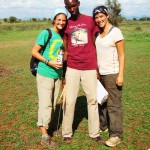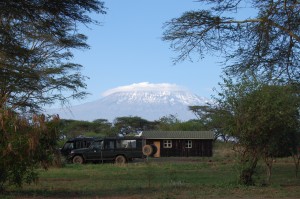Moving onto week 11 here in Africa, we all have habituated ourselves to the normal everyday occurrences that present themselves each day…that actually are really not so ordinary. It’s funny, we’ll casually advise each other, “Guys, bring a flashlight to the bathroom, clans of elephants have been hanging out behind the water tank all day.” …as if that’s a routine warning to give someone. A few minutes after making statements like this, we usually just laugh at how ridiculous we sound…”The monkeys behind my banda stole my pants from the clothing line.” or “How many pens do you think that bracelet is worth?” Thus, we invented the saying TIA (This is Africa). TIA replaces the lengthy justification for any nonsensical statement you may make. Yes, you could explain to someone that we judge a bracelet’s worth by pens because here in Africa we trade and the Massai love pens and you usually can get a bracelet for about 2 pens on a good day but sometimes if you bring a Sharpie…etc…you get this point. So this phrase basically rationalizes any bizarre statement. It means, “Life is beyond different in Africa, accept it, and get over it.”
I know I posted a Culture Shock 101 course back in TZ only a few weeks into the program. Since then, we have compiled quite a lengthy list of “TIAs” beginning on Day 1 of this crazy journey. Hopefully it gives you a better sense of how Africa has made us, one could say, more open to the “treasures” that life has brought us here. Enjoy.
TIA [This is Africa]
1. I changed a flat tire 3 meters from a sleeping lion, TIA.
2. It is Saturday. It is 7:30 AM. I am in class, TIA.
3. I haven’t seen a napkin at any meal since August, TIA.
4. I went on a one km drive and had to stop for 6 different cows, TIA.
5. I’ve seen one paved infrastructure. It was not a road but the lining of an irrigation canal, TIA.
6. Every time I consider taking a shower, I have to think twice: Am dirty enough that exposing my body to the black mambas in the ceiling is worth it? TIA.
7. It is 90 degrees and I am shampooing my hair in an outdoor shower while watching a blizzard swallow the summit of Kilimanjaro, TIA.
8. Awkward silence is a beautiful thing, TIA.
9. I have never eaten dinner without a headlamp strapped around my forehead, TIA.
10. I’ve eaten peanut butter & jellies at 7 different national parks, TIA.
11. Seeing men armed with rifles at dawn and dusk is an everyday occurrence, TIA.
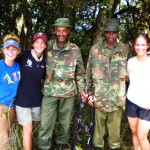
12. Instead of saying, “She’s pregnant!” I said “She is in her gestation period.” Instead of yelling at you guys for not saving me a seat in the land cruiser yesterday, I said, “You displaced me from your habitat.” TIA.
13. I got invited to a wedding in Rhotia and wore a skirt to my toes, smartwools, and hiking boots, TIA.
14. When I wear flip-flops at night, I worry about either A) potential death by snake bite or B) jigger infestation, TIA.
15. Hyenas are like raccoons, elephants are like deer, baboons are like squirrels, and dik diks are like chipmunks, TIA.
16. I think I’ve talked about diarrhea, at least once, with every single student here…during breakfast, TIA.
17. I live in a place where flies give you acid burns (Nairobi flies), caterpillars leave fiberglass material in your skin, and monkeys steal lunch from your hands, TIA.
18. Our Directed Research “prep talk” consisted of a professor telling us that last session a student ended his transect count early because he was chased by a cheetah, TIA.
19. Our pet dog’s name is Rabies, TIA.
20. I woke up in the middle of the night because my mosquito net had collapsed and was suffocating me, TIA.
21. I haven’t spent more than 5 minutes alone (sleeping excluded) in 2 ½ months, TIA.
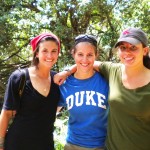
22. I have 27 roommates, TIA.
23. You don’t need toilet paper, TIA.
24. We listen to “ABC, 1, 2, 3” during breakfast crew because that’s the most recent CD our campsite has, TIA.
25. Today we taught Maasai mommas the electric slide, TIA.
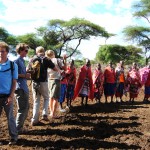
26. I forgot to wear my seat belt in the car once and I got an egg sized bruise on my head, TIA.
27. Lions cubs will hide under the car if you stop for longer than 5 minutes, TIA.
28. I was given the cold shoulder last week for 3 full days because I killed a beetle, TIA.
29. I crutched through the Serengeti, TIA.
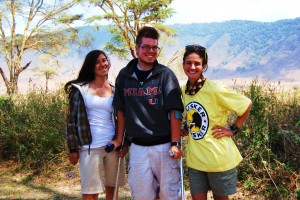
30. I haven’t showered for 17 days, TIA.
31. My leg hair is longer than my boyfriend’s, TIA.
32. I am anxious because the internet hasn’t cut out for a full hour, TIA.
33. The first day here, I was sold a black shirt that said mzungu [white person] in cool white writing. The vendors told me it was just a popular Swahili word that they liked! Immerse yourself into the culture right?? …Now because I only have 2 t-shirts left, I have to wear a shirt 3 times/week that says “I am a white person” on it, TIA.
34. I forgot my water bottle one day and was then sick, from dehydration, for three, TIA.
35. I brushed my teeth using sink water one time and got dysentery, TIA.
36. I prefer to go in the woods over the latrines, TIA.
37. Every single letter I have gotten from the US either says “Hakuna matata!” or “Tell simba hello!” TIA.
38. Today I spent 3 hours explaining that head balls actually are executed using your forehead. And that “football” really does mean using your feet, not your hands, TIA.
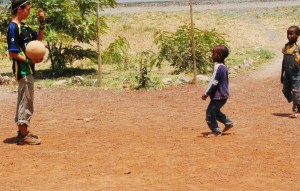
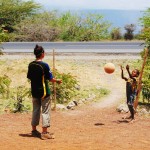
39. Our site manager said that if you ever feel like you need some alone time, turn around, close your eyes for 5 minutes, and then you should be fine, TIA.
40. I just made reservations at a hotel on the coast for a 4-man “tree-house” TIA.
41. I’ve gotten fleas twice. And yes, I am a homo sapien, not a canine, TIA.
42. We’ve been sitting here for 3 minutes and I’ve already seen a spider the size of my palm, TIA.
43. This is where we hang out between lectures, TIA.
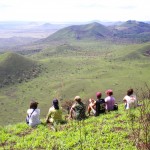
☮ Hannah

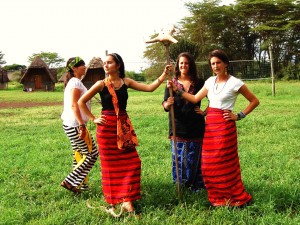
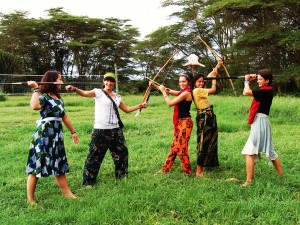
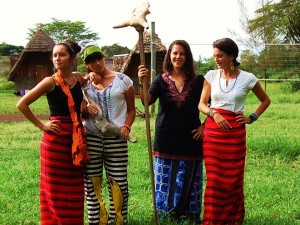
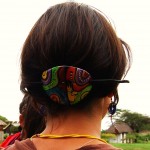
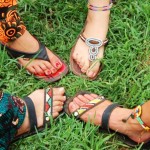
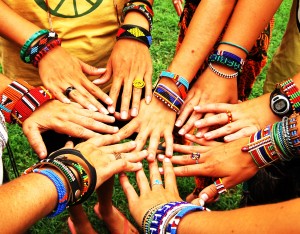
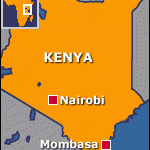
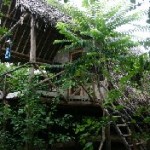
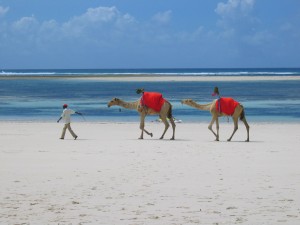
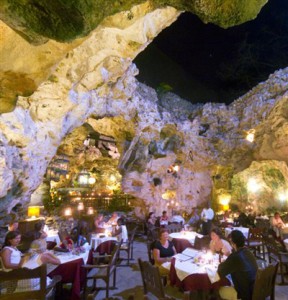

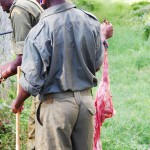 goats…So yes, they actually let our research group watch these ravenous lions eat their dinner…3 goats. They also let us get so close to the lions
goats…So yes, they actually let our research group watch these ravenous lions eat their dinner…3 goats. They also let us get so close to the lions 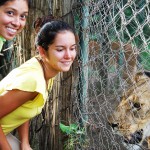

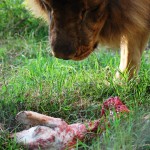

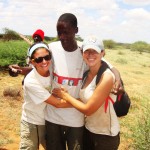
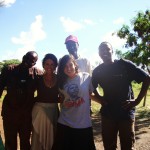 ! Although completing this component of directed research felt extremely satisfying, today was a day like no other. Going into Maasai bomas (synonymous for a little community, usually with 3-4 huts holding multiple families) defines being pushed out of your comfort zone. During any ordinary interview, it is not uncommon for a goat to give birth, fathers to be brushing their teeth with frayed sticks, mommas to be completely exposed and breast-feeding, and children having flies literally crawling all over their faces to point you may witness 1-3 crawling up their noses and they will not even flinch. It is a tough reality to take in while attempting to get an accurate idea of their perceptions regarding the surrounding land without too much getting lost in translation. Today during an interview, another little boy I fell in love with (Emanuel) spent this 30 minutes playing “connect the dots” with the freckles on my arms. Anyone that knows me is familiar with my pretty distinct freckles I have all over my arms. Emanuel spotted them also…which was fine…until he had spotted the newly acquired “beauty marks” (oh euphemisms) on my nose. I Iooked very interesting after this interview. To make matters even more exciting, the momma milked the cow in front of me, poured the fresh (understatement) milk through a strainer, into a mug, and then handed it to me. Note: I hadn’t consumed real milk since being in the states…and usually I just drink soy milk. However, milk is a delicacy for these people, I really couldn’t say no. This would have been an okay happening maybe once…but I was lucky enough to get offered milk 3 times 🙁 . I pray I don’t get sick tonight. Told you I would get my calcium intake mom! Additionally, the momma that I interviewed was 16, her husband 17, and they already had 4 kids. The momma was one of 22. The human population level here is both exponential and honestly sickening. It is the foundation of all problems: poverty, conflict of pasture and water, spread of disease…everything traces back to it.
! Although completing this component of directed research felt extremely satisfying, today was a day like no other. Going into Maasai bomas (synonymous for a little community, usually with 3-4 huts holding multiple families) defines being pushed out of your comfort zone. During any ordinary interview, it is not uncommon for a goat to give birth, fathers to be brushing their teeth with frayed sticks, mommas to be completely exposed and breast-feeding, and children having flies literally crawling all over their faces to point you may witness 1-3 crawling up their noses and they will not even flinch. It is a tough reality to take in while attempting to get an accurate idea of their perceptions regarding the surrounding land without too much getting lost in translation. Today during an interview, another little boy I fell in love with (Emanuel) spent this 30 minutes playing “connect the dots” with the freckles on my arms. Anyone that knows me is familiar with my pretty distinct freckles I have all over my arms. Emanuel spotted them also…which was fine…until he had spotted the newly acquired “beauty marks” (oh euphemisms) on my nose. I Iooked very interesting after this interview. To make matters even more exciting, the momma milked the cow in front of me, poured the fresh (understatement) milk through a strainer, into a mug, and then handed it to me. Note: I hadn’t consumed real milk since being in the states…and usually I just drink soy milk. However, milk is a delicacy for these people, I really couldn’t say no. This would have been an okay happening maybe once…but I was lucky enough to get offered milk 3 times 🙁 . I pray I don’t get sick tonight. Told you I would get my calcium intake mom! Additionally, the momma that I interviewed was 16, her husband 17, and they already had 4 kids. The momma was one of 22. The human population level here is both exponential and honestly sickening. It is the foundation of all problems: poverty, conflict of pasture and water, spread of disease…everything traces back to it.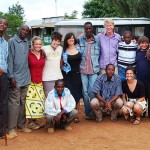 success. Take 2: Emanuel spotted us and was not happy that he was not invited
success. Take 2: Emanuel spotted us and was not happy that he was not invited 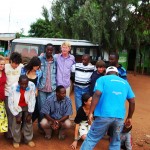 . Take 3: yet another African family
. Take 3: yet another African family 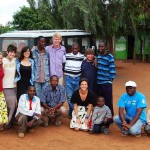 .
.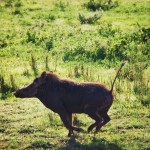 while others were not very captivated
while others were not very captivated 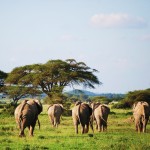
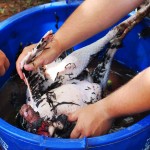 . Not to be graphic but the body moved for about 6-8 full minutes after the detachment
. Not to be graphic but the body moved for about 6-8 full minutes after the detachment 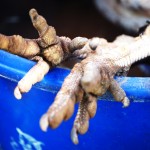 . Although I am guilty of not eating the meat, it was kind of cool to actually see where our meat was coming from and that they weren’t pumped with hormones and force fed with iron hollow tubes but anyway. It was quite the way to start Thanksgiving here in Africa. While the staff prepared, along with a few other ambitious students, we went to a bar in Kimana to celebrate our holiday!
. Although I am guilty of not eating the meat, it was kind of cool to actually see where our meat was coming from and that they weren’t pumped with hormones and force fed with iron hollow tubes but anyway. It was quite the way to start Thanksgiving here in Africa. While the staff prepared, along with a few other ambitious students, we went to a bar in Kimana to celebrate our holiday! 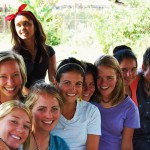 After we got back to our site, our chumba turned into a Thanksgiving wonderland
After we got back to our site, our chumba turned into a Thanksgiving wonderland 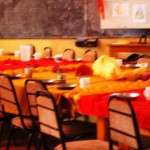 . I know it’s not extravagant but this room is usually just stained brown with the light-espresso burlap and dark timber structures. It was the first time I’ve actually realized that fall had come and gone in the states without me. Although nostalgia was whisking through the air, it was so exciting because again, as cliché as it sounds, the students and staff here are without a doubt my family from another mother…does that phrase work?? But really, I have never felt this level of comfort and pure empathy with anyone but my own family so it was pretty cool to have this experience with them
. I know it’s not extravagant but this room is usually just stained brown with the light-espresso burlap and dark timber structures. It was the first time I’ve actually realized that fall had come and gone in the states without me. Although nostalgia was whisking through the air, it was so exciting because again, as cliché as it sounds, the students and staff here are without a doubt my family from another mother…does that phrase work?? But really, I have never felt this level of comfort and pure empathy with anyone but my own family so it was pretty cool to have this experience with them 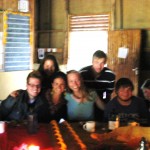 . In order to truly capture the American Thanksgiving, upon entrance into the chumba, we were given a family member role that we had to carry out the whole meal. For example: the overzealous mother that is way too turkey-happy
. In order to truly capture the American Thanksgiving, upon entrance into the chumba, we were given a family member role that we had to carry out the whole meal. For example: the overzealous mother that is way too turkey-happy 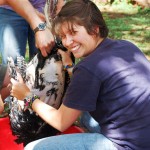 , the crazy aunt that is way too type A and obsessed with her children’s accomplishments, the father that seems to only get himself into sticky situations
, the crazy aunt that is way too type A and obsessed with her children’s accomplishments, the father that seems to only get himself into sticky situations 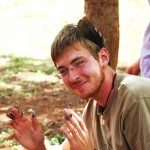 , the Grandma and Grandpa that only want pictures, pictures, and more pictures of their grandkids, and of course, I was the newlywed that was too in love to give a care in the world about Thanksgiving
, the Grandma and Grandpa that only want pictures, pictures, and more pictures of their grandkids, and of course, I was the newlywed that was too in love to give a care in the world about Thanksgiving 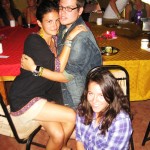 …and Kat was my child…figures. Also guilty, I threw up after dinner. Yes I am dead serious. I have never ever thrown up from overeating so I was actually genuinely concerned. But that didn’t stop me from devouring the pumpkin pie later that evening.
…and Kat was my child…figures. Also guilty, I threw up after dinner. Yes I am dead serious. I have never ever thrown up from overeating so I was actually genuinely concerned. But that didn’t stop me from devouring the pumpkin pie later that evening.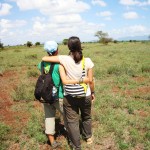
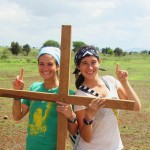
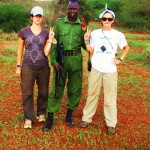 we were so wrapped up in our plot measurements that we looked up and realized, woah wildebeest in our transect
we were so wrapped up in our plot measurements that we looked up and realized, woah wildebeest in our transect 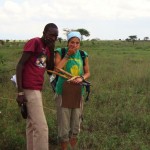
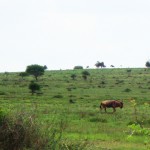
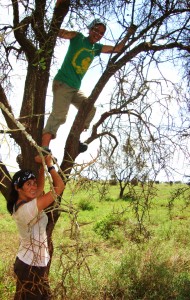 .
. 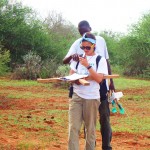 Our guides always keep us on track though (makes SURE I check my compass every 5 minutes). Post plot 3
Our guides always keep us on track though (makes SURE I check my compass every 5 minutes). Post plot 3 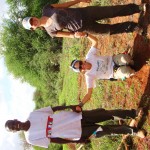 an Acacia thorn literally swallowed me–and then they dug the acacia thorns out of my hands…using an Acacia thorn, TIA.
an Acacia thorn literally swallowed me–and then they dug the acacia thorns out of my hands…using an Acacia thorn, TIA. 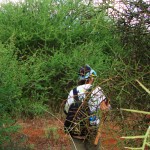
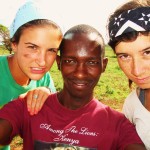 but we’re tough out here in the bush
but we’re tough out here in the bush 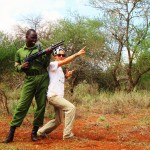
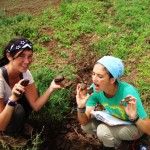
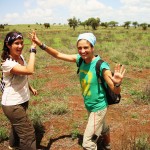
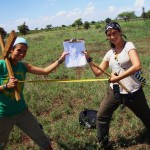
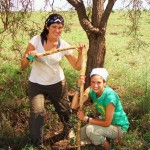
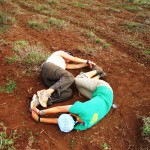
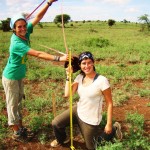
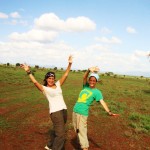 . So we had to do this for 4 days straight but today was our last day!
. So we had to do this for 4 days straight but today was our last day! 